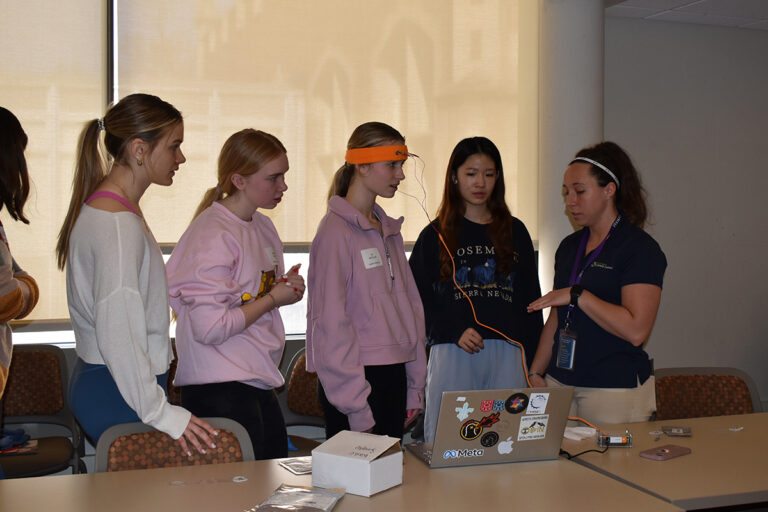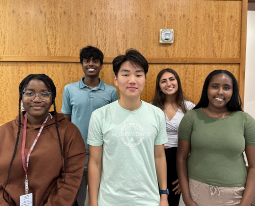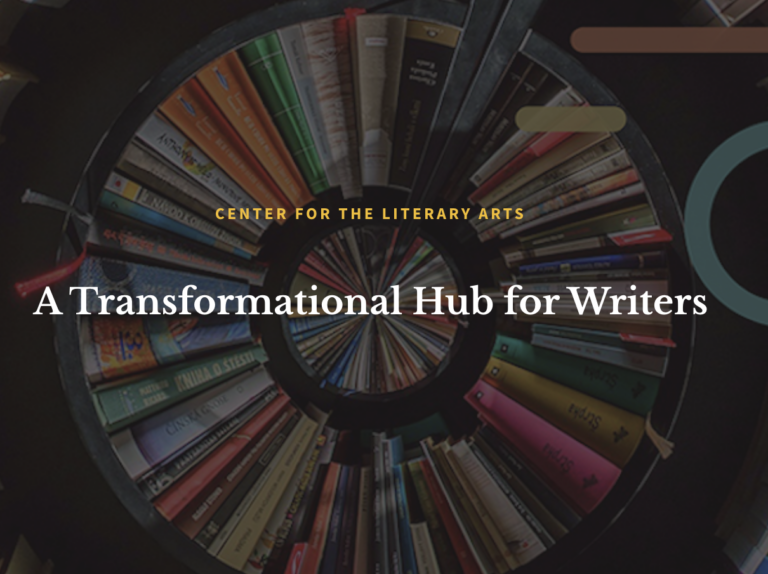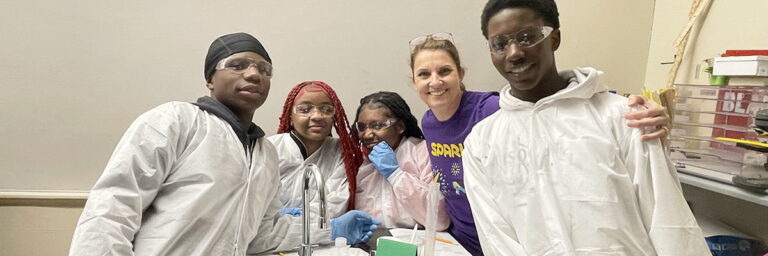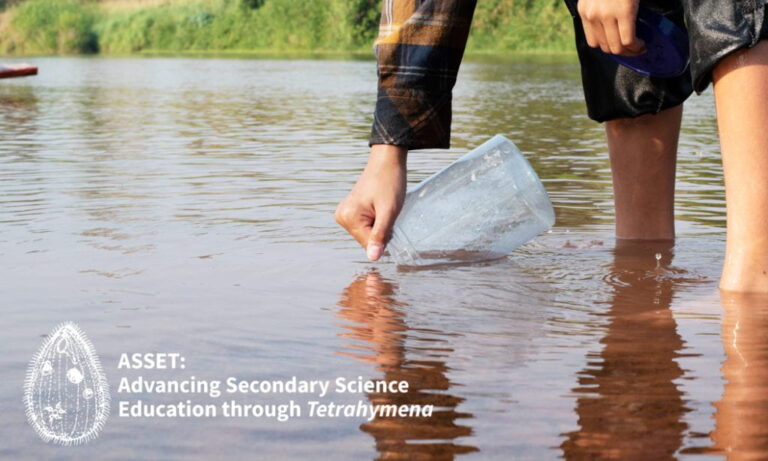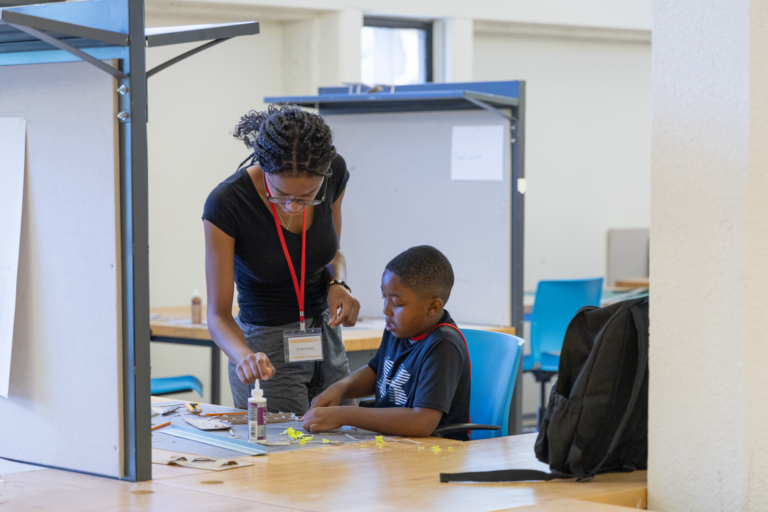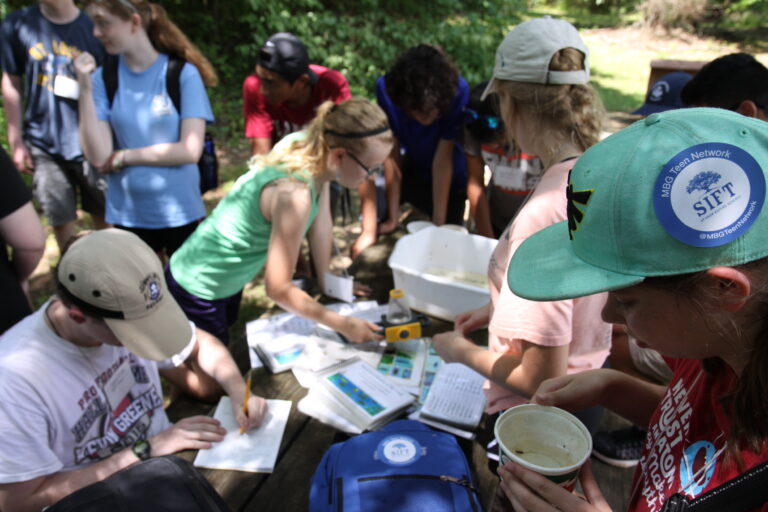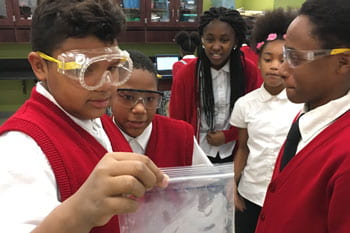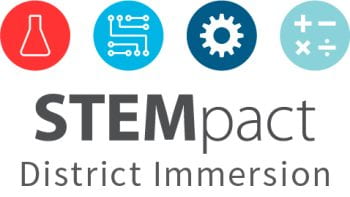St. Louis Area Brain Bee
The St. Louis Area Brain Bee (SLABB) is an annual event for high school students that are interested in the brain and neuroscience led by WashU Arts & Sciences. Demonstrations, panels, and material come from Brain Facts, a book produced by the Society for Neuroscience. SLABB pays for the winner to compete in the US National Brain Bee competition.
Cancer Research Inspiring Future Scientists Program (CRISPr)
Cancer Research Inspiring Future Scientists Program (CRISPr) provides St. Louis area high school students an entry into academic research. Participants receive a generous stipend, mentorship, training, and access to a world-class community and environment. No previous research experience is required. Students from historically underrepresented backgrounds are particularly encouraged to apply.
Center for the Literary Arts
The Center for the Literary Arts is a transformational hub for creative writing and translation, as well as different forms of literary arts and creative practice across Washington University and the St. Louis community. As an initiative of the Arts & Sciences Strategic Plan, the Center explores all the ways in which literary art and creative practice can change the world around us. It seeks to unite communities within and beyond academia by reimagining vital literary art-making for the 21st century locally and globally.
Institute for School Partnership
Through its partnerships with local schools and its work to bridge research and practice, the Institute for School Partnership (ISP) at WashU is closing the education gap for tens of thousands of students in under-resourced schools. ISP has helped boost math and science learning, raise standardized test scores, increase teachers’ confidence in teaching STEM, and improve students’ self-confidence and development of career goals.
The ASSET Program
Advancing Secondary Science Education through Tetrahymena (ASSET) is an NIH SEPA funded science education outreach program at Washington University in St. Louis. ASSET has developed a variety of modular science education materials designed to stimulate hands-on, inquiry-based learning of fundamental biological concepts for all grade levels. Among the aims outlined in the grant for the program is reaching populations traditionally underrepresented in science in the St. Louis area.
Science Media Fellowship
The Science Media Fellowship program at WashU Medicine’s McDonnell Genome Institute supports local high school students interested in science, journalism, public policy, and more. Additionally, the program shares with students how stories told about science influence public perception and public policy.
Alberti Program
Since 2007, the Alberti Program has brought young people from across the St. Louis region to the Washington University campus for a hands-on experience tackling 2- and 3-dimensional problems in architectural design, with an eye toward the greater environment. They are introduced to the field of architecture through lectures, discussions, and reviews about design projects. They explore campus and connect with WashU graduate and undergraduate students, who serve as teaching assistants.
Shaw Institute for Field Training (SIFT)
The Shaw Institute for Field Training (SIFT) program is an introductory training program designed to engage St. Louis 10th-12th graders in scientific exploration of the natural world, in collaboration with Shaw Nature Reserve. The program provides virtual and in-person training. Students are able paid and given transportation to these sites. Opportunities include species management, habitat restoration, and plant and animal inventories.
mySci
Partnering with K-12 schools, WashU bridges research and practice to provide educators with the resources of the mySci curriculum. The mySci approach empowers schools to cultivate curiosity-driven education that is accessible to all students. Schools can volunteer to be a mySci partner as WashU provides the materials.
STEMpact District Immersion
STEMpact District Immersion (DI) is an ambitious effort launched by the Institute for School Partnership at Washington University in St. Louis (ISP) to support school districts in creating systemic change in mathematics education.
